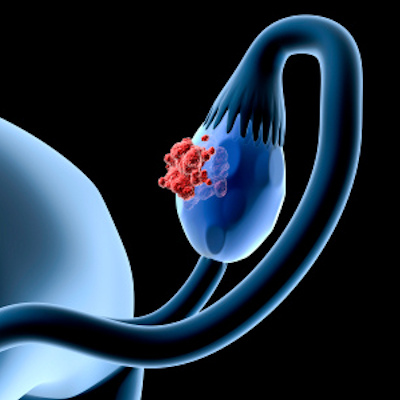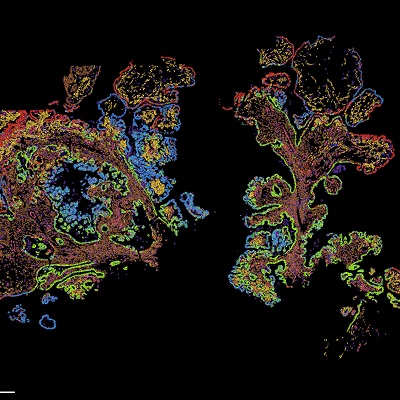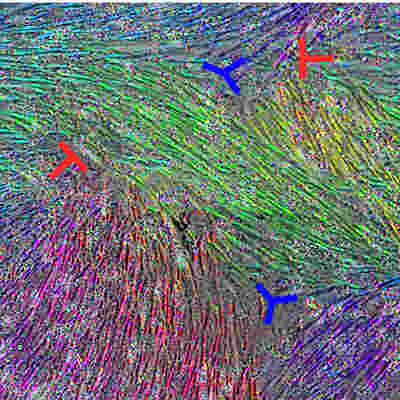April 17, 2023 -- Researchers working in a preclinical study have verified a new target for recurrent drug-resistant ovarian cancer and provided data to support a treatment approach now in clinical trials. The findings were presented on Sunday, during the American Association for Cancer Research (AACR) 2023 annual meeting.
Ovarian cancer remains the fifth leading cause of cancer deaths among women. Unfortunately, most ovarian cancers recur after treatment and become resistant to standard platinum chemotherapy drugs. Platinum-resistant ovarian cancer is highly challenging to treat, underscoring the need for new therapies in this area.
A newer targeted standard of care treatment involving PARP inhibitors has increased survival rates for ovarian cancer patients. PARP inhibitors block the enzyme PARP, preventing cancer cells from repairing their damaged DNA, and causing them to die. However, like chemotherapy, PARP inhibitors eventually stop working, leaving patients without treatment options.
The researchers instead focused on the protein B7-H4, a potentially high impact target found in most breast and ovarian cancers at diagnosis. Because cancer treatment can affect which proteins are expressed on cells, they sought to determine whether B7-H4 was still expressed at high levels after multiple treatments and would therefore be an appropriate target for patients who have received chemotherapy or PARP inhibitors.
The team used matched samples from the Penn Ovarian Cancer Research Center Tumor BioTrust Collection to determine whether B7-H4 was found in tumor tissue from the same patients before, during, and after treatment, as well as in end-stage metastatic disease. They found that B7-H4 was overexpressed in 92% of high-grade serous ovarian carcinoma tumors at diagnosis and maintained at high levels throughout the cancer treatment. Importantly, the protein was consistently found on the outside of the cells, where drugs could more easily bind to it.
Antibody-drug conjugates are a new class of highly targeted immunotherapy drugs with significantly less toxicity than traditional chemotherapy. After establishing B7-H4 as a viable target, the researchers tested an antibody-drug conjugate in multiple cell lines and more than 20 patient-derived xenograft (PDX) cancer models, in which cells from a patient's tumor are implanted into immunodeficient mice.
In 61% of PDX mice that hadn't received any previous PARP inhibitors or chemotherapy, the tumors decreased in size after just one dose. With continued treatment every 28 days, mimicking clinical dosing, the drug resulted in significant tumor regression and increased survival in treatment resistant PDX mice.
Researchers say that such effective anti-tumor activity, sustained over long periods in drug-resistant models, is uncommon. They consider B7-H4 a robust, widespread target, potentially usable across multiple stages of patient care. An antibody-drug conjugate targeting B7-H4 is now being tested in a multisite phase 1 clinical trial.
"We're excited about the potential for antibody-drug conjugates to overcome drug resistance. This work shows they merit further development in ovarian cancer," Dr. Fiona Simpkins, senior author and a professor of obstetrics and gynecology at Penn Medicine, said in a statement.
Disclosure: The study was funded by AstraZeneca. Dr. Simpkins reports research support from and scientific advisory board participation with AstraZeneca.
Copyright © 2023 scienceboard.net











